Latest Solana News

3 days ago
Messari Predicts DePIN Market Cap to Reach $3.5 Trillion by 2028
In a recent report, Messari, a prominent crypto data platform, has projected that the market capitalization of Decentralized Physical Infrastructure Networks (DePIN) could reach an astounding $3.5 trillion by 2028. This forecast comes on the heels of a significant event in Europe, the "2025 Iberian Peninsula blackout," which resulted in a €1.6 billion setback and highlighted the vulnerabilities of centralized systems. The incident has prompted a reevaluation of aging energy and communication infrastructures, emphasizing the urgent need for decentralized alternatives like DePIN.
Messari's analysis indicates that the DePIN market is gaining momentum, with its value estimated to grow to $50 billion in 2024. The first quarter of this year showcased a surge in capital markets, technology adoption, and sector innovation, despite the sector still being in its early stages. With over 13 million devices contributing to the decentralized network and $350 million in seed funding, the demand for DePIN is expected to rise exponentially in the coming years. The anticipated market cap of $3.5 trillion would surpass the $1.8 trillion valuation of the telecom services market by 2024, according to Data Bridge.
The report also underscores the roles of Solana and Base as pivotal players in the DePIN ecosystem. Messari noted that DePINs launched a year prior to its Q1 2025 report achieved an average fully diluted valuation of $760 million, marking significant growth. Solana is positioned to become a leading network infrastructure, while Base is expected to see increased demand for consumer-focused applications. Other notable projects within the Solana ecosystem include Render, Helium Mobile, Hivemapper, Xnet, and Nosana, all of which are set to play crucial roles in the evolution of DePIN.

7 days ago
DeCloud Labs Proposes Final Migration from StackOS to StackAI
DeCloud Labs has announced a significant shift in its focus from StackOS to StackAI, marking the end of support for the former and the beginning of a new chapter aimed at enhancing AI agents. After extensive discussions within the community, the company has decided to permanently close the migration process from StackOS to the new STKAI token on Solana. This decision comes in light of ongoing security concerns related to cross-chain bridges, particularly following the PolyNetwork hack, which prompted a reevaluation of their operational strategies. The migration period has provided StackOS token holders ample opportunity to convert their tokens, but the time has come to finalize this transition.
The proposal outlines the closure of bridge-based migrations and the establishment of a fixed supply of STKAI tokens, which aims to eliminate confusion surrounding token mintability. As of May 30, 2025, any unconverted STACKAI tokens will be airdropped as STKAI on Solana for those who opened support tickets prior to this date. However, any unclaimed tokens will be considered burned, thereby permanently removing them from circulation. This final step is intended to secure the integrity of the token supply and enhance clarity for both new and existing investors regarding the tokenomics of STKAI.
In conclusion, the DAO proposal emphasizes the importance of community engagement, allowing token holders to choose between remaining with StackOS or transitioning fully to StackAI. DeCloud Labs is committed to the development of StackAI moving forward, while also offering support to those interested in continuing the StackOS project. The final voting will take place across three instances to ensure all community members have the opportunity to participate, with the results communicated transparently to the community. This strategic move not only secures the future of STKAI but also addresses the pressing security risks associated with bridge infrastructures.

7 days ago
Alpha Liquid Fund Invests in $XNET Token Ecosystem to Transform Mobile Connectivity
Alpha Liquid Fund has announced a significant investment in the $XNET token ecosystem, reinforcing its commitment to innovative projects in the decentralized wireless (DeWi) sector. The XNET Foundation is at the forefront of transforming mobile connectivity by addressing the limitations of traditional network infrastructure. By utilizing blockchain technology on the Solana network, Citizens Broadband Radio Service (CBRS) spectrum, and Wi-Fi 6+, XNET empowers local builders to deploy LTE/5G or carrier-grade Wi-Fi in underserved areas. This community-driven approach not only reduces costs but also enhances scalability, offering resilient connectivity solutions that challenge conventional Mobile Network Operator (MNO) models.
Recently, XNET Mobile was recognized as an International Data Corporation (IDC) Innovator in DePIN for 2025. In April, the project achieved a notable milestone with a 16% increase in average daily data offload, showcasing its ongoing momentum. Wes Levitt, the Chief Investment Officer of Alpha Liquid Fund, emphasized the tangible impact of XNET, highlighting the consistent growth in data offload and the strong community support that fuels the network's progress.
Alpha Liquid Fund specializes in liquid digital assets, maintaining a 90-day liquidity threshold. The fund employs a rigorous fundamental research approach, investing in digital assets both on the open market and through OTC deals directly from crypto projects. By utilizing institutional hedging tools and diversifying across sectors and market caps, Alpha Liquid Fund aims to deliver strong returns with reduced volatility and risk compared to direct digital asset holdings. Meanwhile, the XNET Foundation continues to drive innovation in decentralized wireless networks, striving to create scalable and cost-effective mobile connectivity solutions globally.
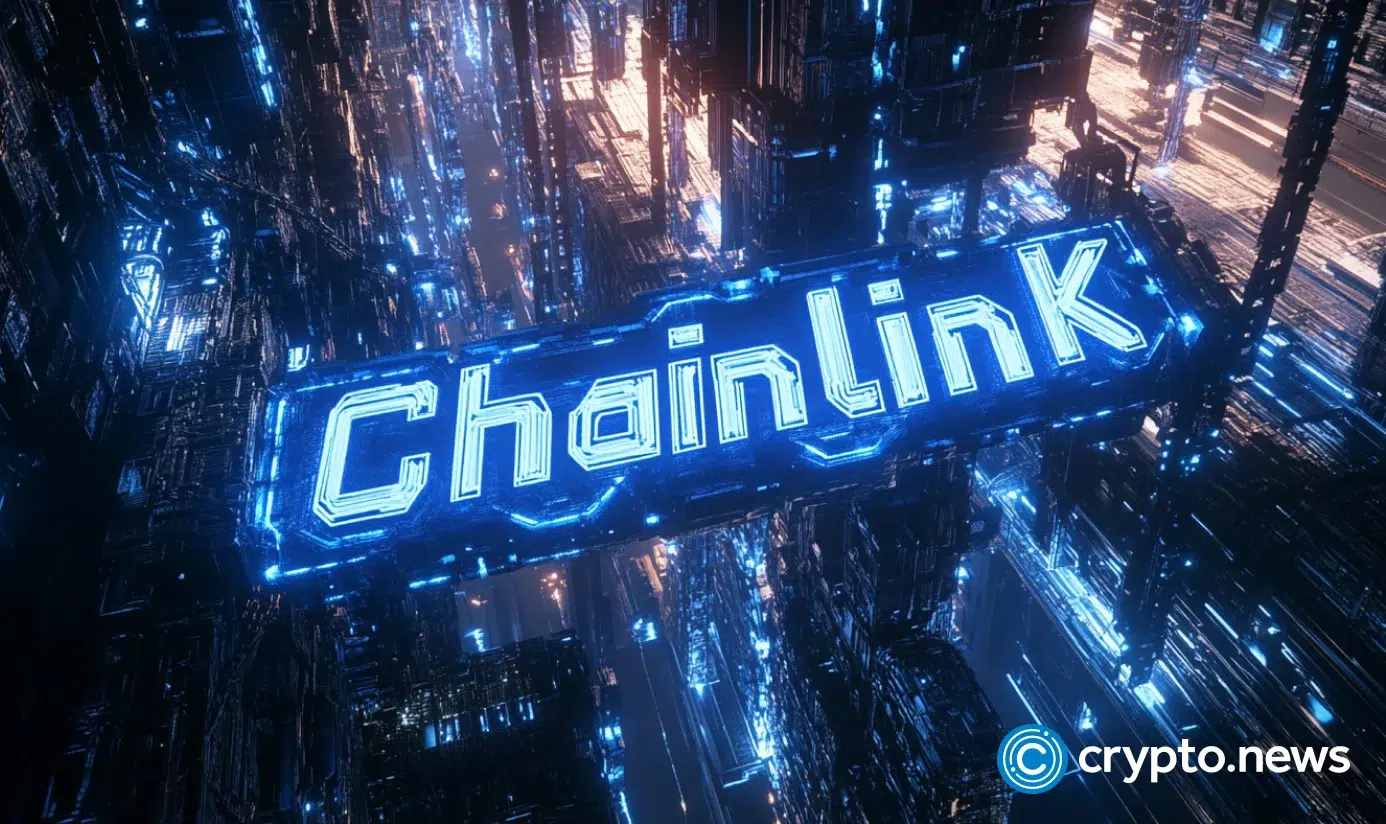
8 days ago
The Graph Integrates Chainlink's Interoperability Standard for Cross-Chain GRT Transfers
The Graph, a prominent indexing and query protocol, has recently integrated Chainlink’s interoperability standard, marking a significant advancement in the cross-chain transfer capabilities of its native token, GRT. This integration allows users to bridge GRT across multiple blockchains, including Solana, Arbitrum, and Base. The Graph team emphasized that this adoption is a crucial step towards enhancing the accessibility and utility of GRT, particularly highlighting the potential benefits for the Solana ecosystem and the broader blockchain landscape.
The integration of Chainlink’s Cross-Chain Interoperability Protocol (CCIP) introduces a range of functionalities, including cross-chain staking, delegation, and query fee payments. This means that developers can now pay for queries on layer 2 chains using GRT, which is expected to streamline operations and enhance user experiences. However, the rollout of these features is contingent upon The Graph successfully launching the necessary bridging infrastructure, which is a critical aspect of this initiative.
Chainlink has been actively expanding its technology across the crypto industry, with CCIP gaining notable traction. Recently, CCIP went live on the Solana mainnet, which is anticipated to significantly boost decentralized finance growth by providing access to over $18 billion worth of assets on the chain. Additionally, Lombard has also integrated CCIP, showcasing the versatility and demand for cross-chain solutions in the blockchain space. Since its launch in 2018, The Graph has been a vital platform for developers to build and deploy decentralized applications across various networks, including Ethereum, Solana, and Arbitrum.
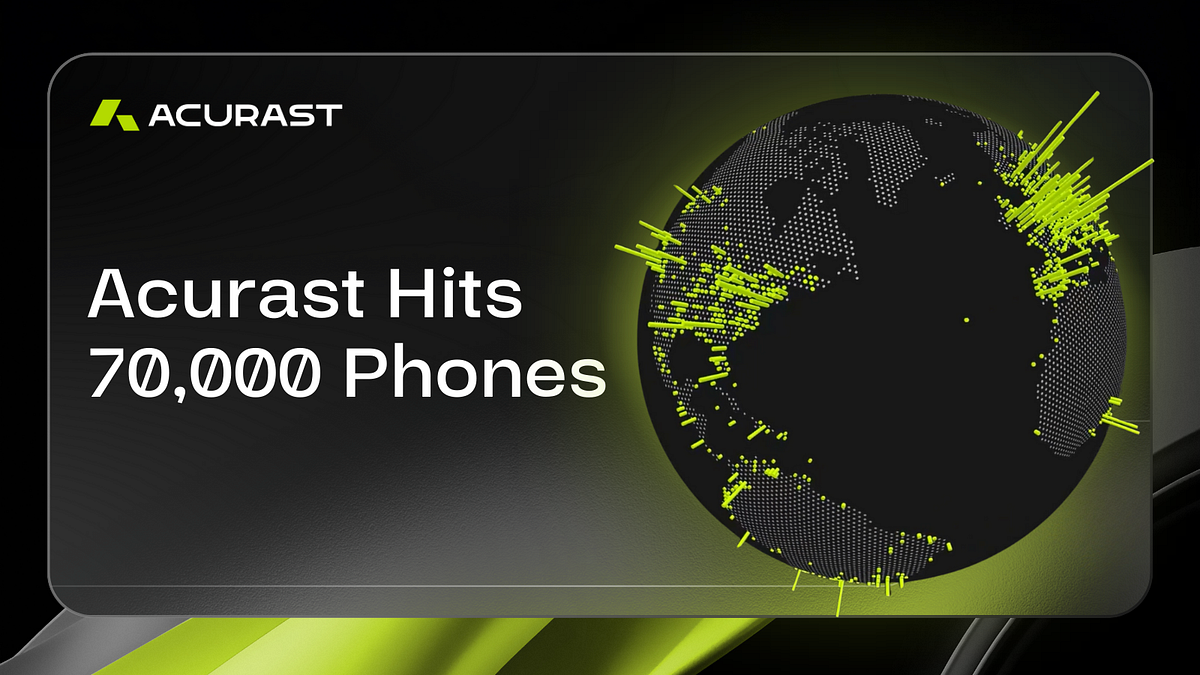
9 days ago
Acurast Reaches 70,000 Smartphones in Decentralized Compute Network
Acurast, a decentralized physical infrastructure network (DePIN) based in Zug, Switzerland, has achieved a significant milestone by onboarding over 70,000 smartphones across more than 130 countries. This remarkable growth translates to over 250 million transactions and 10,750 secure compute deployments, all accomplished without the reliance on centralized data centers. Co-Founder Alessandro De Carli emphasized that this achievement is indicative of a transformative shift in infrastructure development, moving from traditional cloud servers to decentralized computing solutions that utilize everyday smartphones. The surge in user adoption has been fueled by the ongoing Public Token Sale on CoinList and the integration of the Solana community, enhancing the accessibility of Acurast's services.
The innovative approach of Acurast allows ordinary smartphones, including those that are old or damaged, to function as secure compute nodes. By leveraging modern Hardware Security Modules (HSMs), even lightweight devices can manage sensitive workloads while ensuring confidentiality and verifiability. This model eliminates the need for specialized hardware or mining rigs, making Acurast one of the most accessible DePIN projects available. In less than a month, the network saw an increase of over 10,000 newly onboarded devices, showcasing the rapid expansion driven by strategic partnerships and real-world applications, such as collaborations with FLock.io and HOPR.
Acurast's growth signifies not only a technical achievement but also a paradigm shift in global infrastructure development. Modern smartphones are now capable of rivaling traditional servers in performance while being more energy-efficient and widely distributed. Acurast's vision is to create compute hubs in homes, offices, and communities rather than in centralized data centers. By empowering individuals to contribute to this decentralized network with their existing devices, Acurast is paving the way for a more inclusive and powerful future in computing. As De Carli stated, this is the future they believe in, and they invite everyone to join the DePIN movement and participate in building the infrastructure of tomorrow.
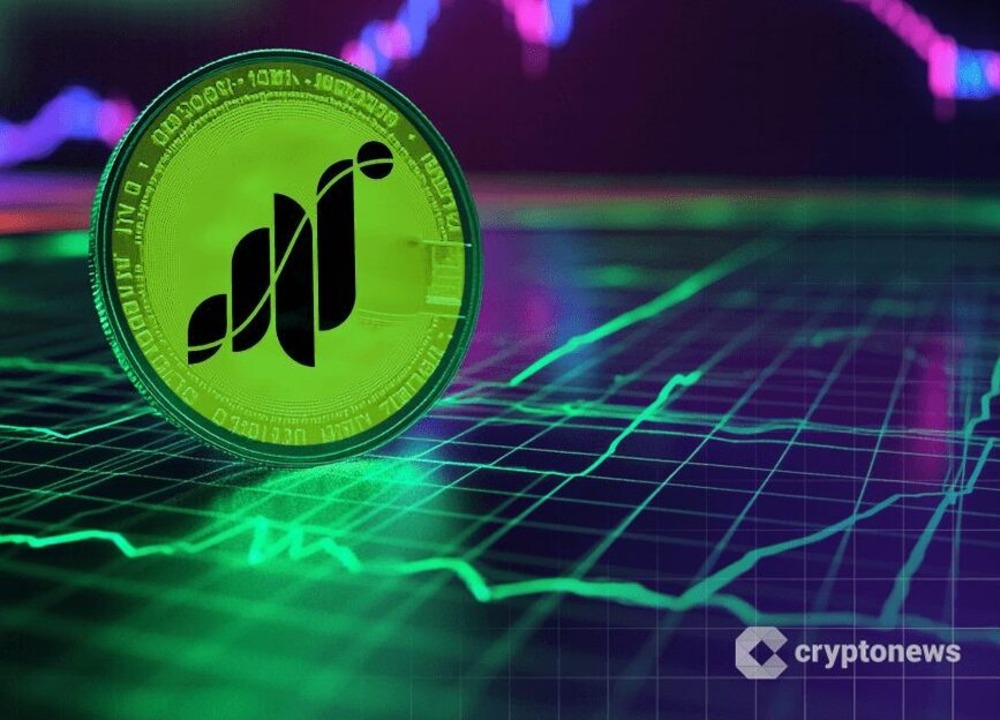
10 days ago
Grass ($GRASS) Faces Correction After 500% Surge: Future Price Predictions
Grass ($GRASS), a decentralized project built on the Solana blockchain, has experienced an 8% decline in value over the past 24 hours, following an impressive 500% surge earlier this month. This downturn raises questions about the sustainability of its recent growth, particularly as it aligns with a broader market correction. Despite this setback, $GRASS has managed to retain a 14-day gain of approximately 13%. The token, which launched in October 2024, has seen significant price fluctuations, reaching an all-time high of $3.90 before settling around $1.88, placing it among the top 123 cryptocurrencies by market capitalization at roughly $460 million.
Grass distinguishes itself by merging Decentralized Physical Infrastructure Network (DePIN) elements with Artificial Intelligence (AI) functionalities. Users who install the Grass browser app can share their excess internet bandwidth to train AI models, earning rewards in the process. This innovative model has led to substantial growth, with the user base expanding from 200,000 to over 3 million between Q4 2024 and early 2025. The platform's capabilities were further enhanced by the Sion Upgrade, which significantly improved its ability to scrape and process multimodal web content, achieving daily data collection rates that rival those of major tech companies.
Despite the recent dip in activity, with daily data scraping falling to around 759,000 TB, Grass remains a formidable player in the DePIN space, second only to Helium on Solana. The project has secured listings on major exchanges, and many traders believe it is currently undervalued, with bullish predictions suggesting a market cap of $1 billion and a potential price target exceeding $4 by year-end. Technical analysis indicates that while the asset has faced resistance, a rebound from current support levels could signal a new upward trend, although a drop below key moving averages might lead to further declines.
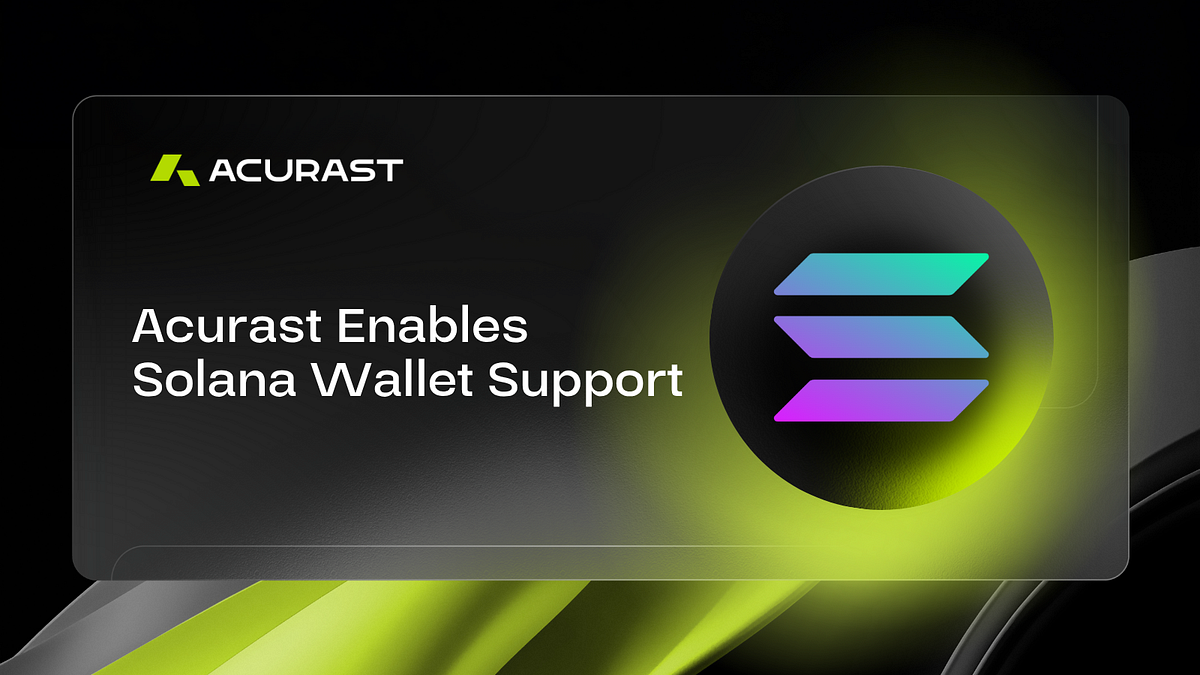
15 days ago
Acurast Integrates Solana Wallet Support to Enhance Decentralized Compute Accessibility
Acurast, a pioneering decentralized compute network based in Zug, Switzerland, has recently announced the integration of Solana Wallet support into its Android and iOS applications. This significant update aims to simplify the onboarding process for new contributors, allowing them to utilize wallets like Phantom to connect their smartphones and provide compute power while earning rewards. With this enhancement, Acurast is not only expanding its accessibility but also reaching a broader audience within the web3 ecosystem. Co-Founder Alessandro De Carli emphasized the importance of inclusivity and ease of access in decentralized computing, stating that the future must be fast and user-friendly.
The core mission of Acurast is to redefine cloud computing by transforming everyday smartphones into secure, decentralized compute nodes. Leveraging Trusted Execution Environments (TEEs) found in modern mobile devices, Acurast offers a scalable and confidential compute infrastructure that operates independently of centralized data centers. With over 65,000 active phones contributing to the network and processing 250 million transactions across 130+ countries, Acurast has established itself as the world's most decentralized compute network, showcasing the potential of community-driven technology.
The integration of Solana Wallets is particularly noteworthy due to Solana's reputation as a fast and cost-effective blockchain ecosystem with a growing user base. This development allows users to quickly connect their wallets to the Acurast Hub, onboard their devices in minutes, and securely provide compute resources. The latest versions of Acurast Core and Acurast Lite are now available on both the Play Store and App Store, making it easier than ever for users to join the movement towards a resilient and community-powered compute network, especially in light of vulnerabilities in traditional cloud infrastructure.

15 days ago
Solana's Recovery and the Rise of AI-Driven Projects Bittensor and Unilabs
Solana (SOL) has shown a remarkable recovery, bouncing back 90% from its lowest point this year, yet it remains constrained below the critical resistance level of $180. Analysts are optimistic, suggesting that the Solana price could be on the verge of a significant breakout, particularly as many SOL meme coins have recently surged. The current market sentiment is buoyed by strong fundamentals and an upward trajectory, with SOL hovering around the $170 mark. A decisive move above the $180 resistance could pave the way for a potential rise towards $200 and beyond, possibly reaching levels around $250.
In the midst of this, Bittensor (TAO) has emerged as a notable player, maintaining a steady performance while other cryptocurrencies, including Bitcoin (BTC), have struggled. The interest in Bittensor is largely driven by its innovative approach to decentralized AI, which has gained traction following high-profile events, such as Donald Trump's attendance at a crypto and AI innovators dinner. Currently trading around $457, Bittensor has demonstrated resilience, holding onto gains and reflecting a growing market confidence in projects that integrate blockchain technology with AI.
Meanwhile, Unilabs (UNIL) is gaining momentum as a compelling alternative for investors looking to diversify from traditional layer-1 networks like Solana. With a focus on merging blockchain transparency with AI infrastructure, Unilabs is positioning itself as a leader in the DeFi and AI space. Its innovative model, which includes a token-based incentive system, aims to attract users and developers alike. As Solana's growth stalls, Unilabs presents a unique opportunity for traders, potentially redefining the standards for DeFi AI platforms in a rapidly evolving crypto landscape.

15 days ago
Unilabs Leads the Charge in DeFi with AI-Driven Investment Strategies
The cryptocurrency market is experiencing a resurgence after a recent downturn, with Bittensor (TAO) breaking through its resistance levels and showing promising upward momentum. In tandem, Solana is also showing signs of a potential uptrend, following a period of stagnation. However, Unilabs is emerging as a standout project in this environment, having attracted over $30 million in assets under management (AUM) through its innovative passive income approach. Experts are highlighting UNIL as a project to watch closely in 2025, given its unique offerings in the decentralized finance (DeFi) space.
Unilabs is making waves as the world’s first AI-backed hedge fund manager, designed to give investors a competitive edge in the market. The platform incentivizes users through staking rewards for UNIL tokens and referral bonuses, which have contributed to its impressive AUM. With over 21 million UNIL tokens sold, the project offers access to four investment funds that span Bitcoin, real-world assets (RWA), artificial intelligence (AI), and mining sectors. Additionally, its AI Market Pulse tool provides valuable insights into investment opportunities, while the Memecoin Identification Tool aids high-risk traders in navigating the volatile memecoin landscape.
As the presale continues to gain traction, having already surpassed $114,000, each token is priced at $0.004, with expectations of a price increase in future rounds. Meanwhile, Bittensor has recently experienced a significant price increase, trading at $481 after a breakout above the $460–$470 resistance level. Similarly, Solana has regained momentum, currently trading around $176 after a notable rise. Both projects are capturing market attention, but Unilabs' innovative asset management features are poised to revolutionize crypto investment, making it a key player to watch in the coming months.
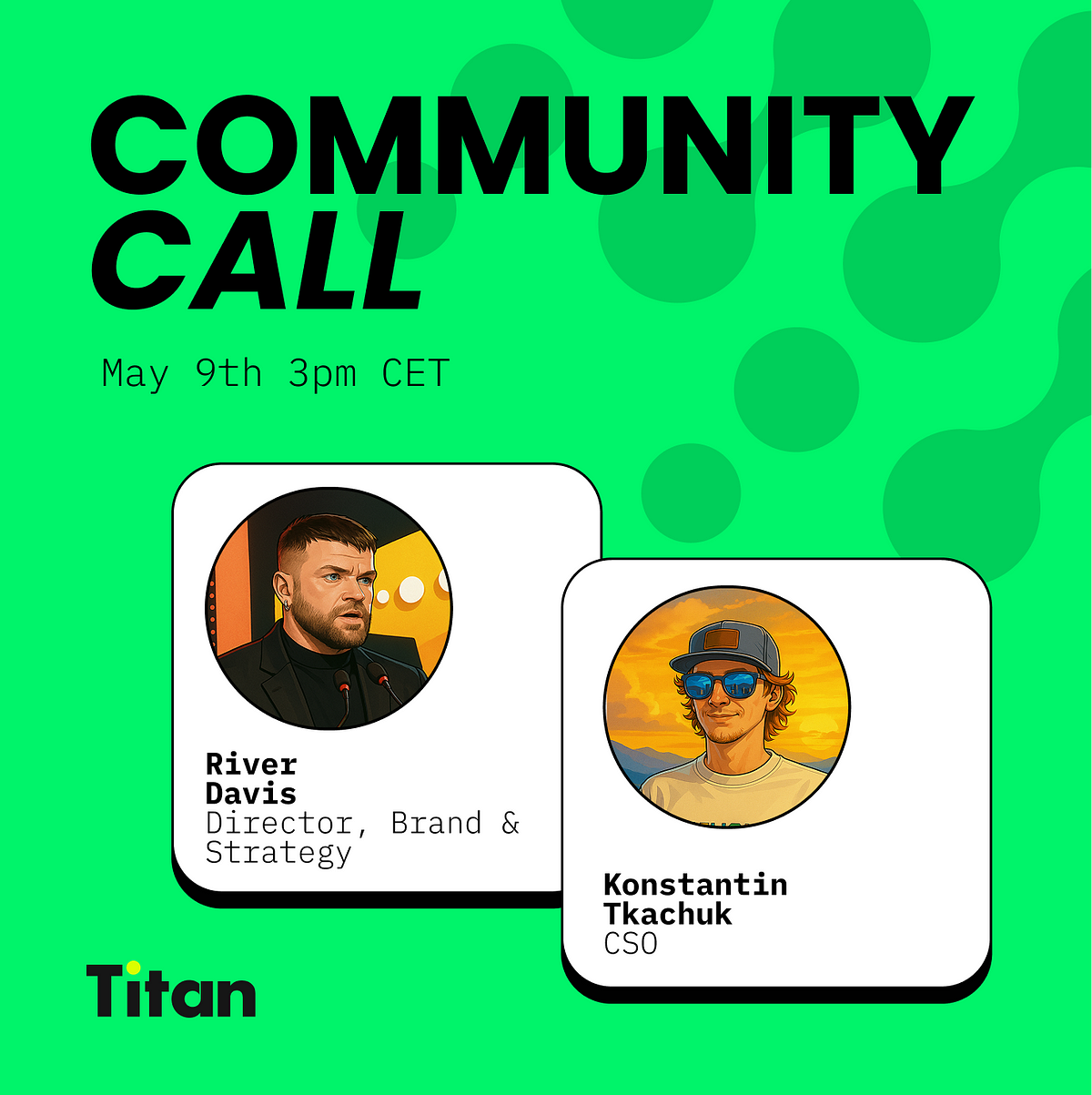
15 days ago
Titan Network's Community Space AMA Highlights Roadmap and Mainnet Preparation
On April 11, 2025, Titan Network held a significant Community Space AMA, focusing on its roadmap progress, technical upgrades, and opportunities for builders and contributors. The session featured project announcements, comprehensive answers to community-submitted questions, and a clear outlook for the path to the mainnet. Key topics included the finalized roadmap, which outlines essential steps leading to the mainnet launch, such as the release of the technical whitepaper, tokenomics paper, exchange pre-approvals, Series A fundraising, codebase finalization, and audit processes.
Titan Network is gearing up for a mainnet launch this year, emphasizing the importance of a secure, fully audited, and functionally complete rollout. The AMA also highlighted updates on Testnet 4, which is now accessible on Windows, allowing for easier node setup. Additionally, the new L1 node optimization plan promises increased rewards for compliant nodes post-mainnet. With TNT4 staking surpassing $1 million in staked tokens and a new cross-chain bridge enabling staking between Solana and Titan chain, the ecosystem is expanding rapidly. The team is also working on merging Testnet 3 and 4, although no specific date has been set yet.
In terms of functionality and infrastructure, Titan's app is undergoing significant upgrades, including UI unification and intuitive node management. The team is exploring ambitious use cases, such as providing CDN infrastructure for major Web2 platforms. Future plans include attending global Web3 events and exploring partnerships in gaming and virtual worlds. The AMA also touched on tokenomics, with plans for dynamic reward adjustments, potential token burns, and governance tools post-mainnet. Community involvement is encouraged through various initiatives, including testing features, content creation, and a potential regional ambassador program, ensuring that Titan Network remains engaged with its user base.
Signup for latest DePIN news and updates